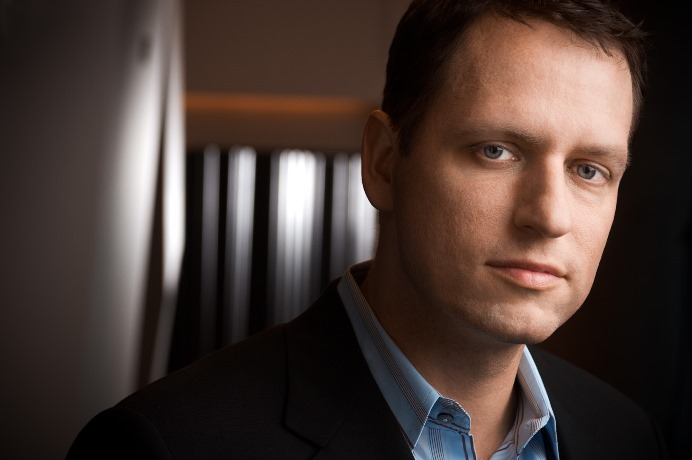A lot of times we have heard, how great investors value a Company but lets see how a great Entrepreneur, Venture Capitalist, and Hedge Fund Manager for example Peter Thiel values a company. What he looks for in the company which builds his interest in any company. In today’s start up world he is a renowned name. He co-founded PayPal with Max Levchin and Elon Musk and served as its CEO. He was the first outside investor in Facebook, the popular social-networking site, with a 10.2% stake acquired in 2004 for $500,000. And to summarize, his net-worth is US $2.2 Billion (Jan 2015). Now I guess, my fellow friend who were not aware about him can understand why he is renowned name and in which companies he invested. If you are interested in knowing more about him, just Google it, you would surely get lakhs of results 😉
After reading his book “Zero to One”, I was quite impressed the way he emphasized the philosophy of progressing from Zero —> One; why companies should differentiate between Zero and One, how it will help them to succeed. So, lets go deeper in this context and understand it.
When a Value Investor invests in a company he likes to invest in such a business which will have bright prospectus; he thinks for a progressive future indirectly. So, it can generate good progressive revenue and profit.
What kind of progress one company can have???
According to Peter Thiel, a company can have two types of progress, namely Horizontal or Vertical.
Horizontal Progress is copying things that work. Its easy to imagine because we already know what it looks like. Whereas Vertical Progress is doing new things. Its harder to imagine because it requires doing something nobody else has ever done.
Peter Thiel says Horizontal Progress in today’s world is reflected in Globalization – taking things that work somewhere and making them work everywhere. Whereas Vertical Progress means technology. It is not limited to computers only. Any new and better way of doing things is technology.
Globalization and Technology, both are different modes of progress. But its possible to have both, either, or neither at the same time. We have faced every kind of scenario in last couple of centuries.
1815 to 1914: Both – Rapid Technological development and rapid Globalization
1914 to 1971: Rapid Technological development but not much Globalization
Since 1971: Rapid Globalization along with limited technological development, mostly confined to IT.
Surely, we are more focused on Globalization now a days. Every country is inviting other nation to replicate their already established working models. But the truth is that technology matters more as we need to innovate continuously to improve the things.
Take an example if a company doubles up its production over next 10 years, it will also double its pollution, operating cost, etc. As we have limited resources to use and to double up production, company has to go for Technological Advancement otherwise it is unsustainable.
Madness is rare in Individuals – but in groups, parties. nations and ages it is the rule
Companies exist to make money, not to lose it.
Every one knows that we were at the pick of technology innovation in 1999-2000. Then suddenly dot-com crash happened. Before that every one was pretty optimistic about the IT sector, new start ups. Every one was putting lot of the money in it.Every start up was getting money from venture capitalist very easily.
The father of value investing, Benjamin Graham, explained this concept by saying that in the short run, the market is like a Voting Machine–tallying up which firms are popular and unpopular. But in the long run, the market is like a Weighing Machine–assessing the substance of a company.
The message is clear:
What matters in the long run is a company’s actual underlying business performance and not the investing public’s fickle opinion about its prospects in the short run.
The Entrepreneurs who stuck with silicon valley learned below mentioned four lessons from the dot-com crash that can still guide business thinking today:
1.) Make Incremental Advances: After the dot-com crash, every one knew it was bubble. Before that every one has grand visions which were too much inflated, which caused the bubble. Small incremental steps are only safe path forward. Any one who claims to be able to do something great is a suspect.
2.) Stay lean and flexible: Companies should try things out, they should iterate and treat entrepreneurship as experimentation.
3.) Improve the competition: Dot-com crash was sure shot example that companies should not try to create a new market prematurely. One should start with a real business which has already existing business; so one should build a company by improving on recognizable products already offered by successful competitors.
4.) Focus on product, not on sales: If a product require advertisement or sales people to sell it; its not good enough: technology is about product development not about distribution.
But surely the opposite principles are probably more correct:
1.) It is better to risk boldness than triviality.
2.) A bad plan is better than no plan.
3.) Competitive markets destroy profits.
4.) Sales Matters just as much as product.
Conclusion: We can clearly understand that we need an era of both Globalization and Technology. If we focus on only one of them, crash could be the result. We need sustainable growth which can come by continuous innovation and globalization. So, if as an investor you are looking to select a company for a long period of time you should look for below major features in the company:
1.) Geographical Expansion: The company is comfortable in expanding its proven model into different geographies. So, its revenue & profits keep increasing and it continues to serve more people.
2.) R&D: The companies putting a part of their revenue in R&D for innovation- to reduce cost, to improve its efficiency, to improve product, to understand market better etc.
3.) Product Expansion: The company is continuously looking to expand its product range by organic or inorganic way.
If you have something to add, Please post your thoughts in comments. I would love to hear from you.
Happy Investing!!










